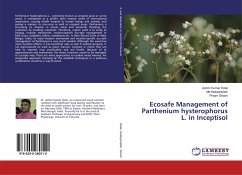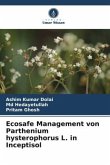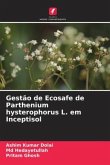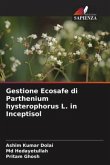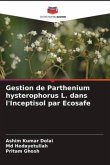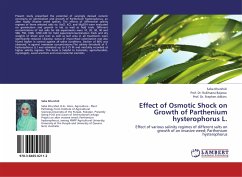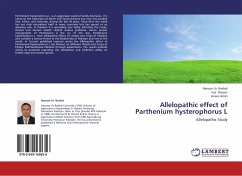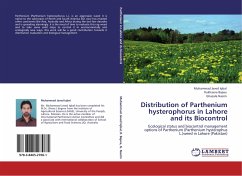Parthenium hysterophorus L., commonly known as congress grass or carrot weed, is considered as a prolific alien invasive weed of international importance, causing health hazards to human beings and animals, and posing a menace to non-crop as well as cropped areas. Parthenium is increasing its invasion in newer areas and presently threating the cultivators by invading croplands. Therefore, urgent need is to study its biology, invasion mechanism, location-specific eco-safe management in field crops, roadsides, fallow, wastelands etc. In New Alluvial Zone of West Bengal, India; its rapid invasion mechanism and location-specific eco-safe management of Parthenium is very much needed. Although the weed has many harmful effects, it has beneficial uses as well if utilized properly. It can agriculturally be used as green manure, compost or mulch that can help to improve crop productivity and soil health. Because of its aggressiveness and evasiveness, the weed, however, needs to be managedin a proper way. There are many approaches to combat weed menace. An integrated approach involving all the available techniques in a judicious combination would be a way forward.
Bitte wählen Sie Ihr Anliegen aus.
Rechnungen
Retourenschein anfordern
Bestellstatus
Storno

